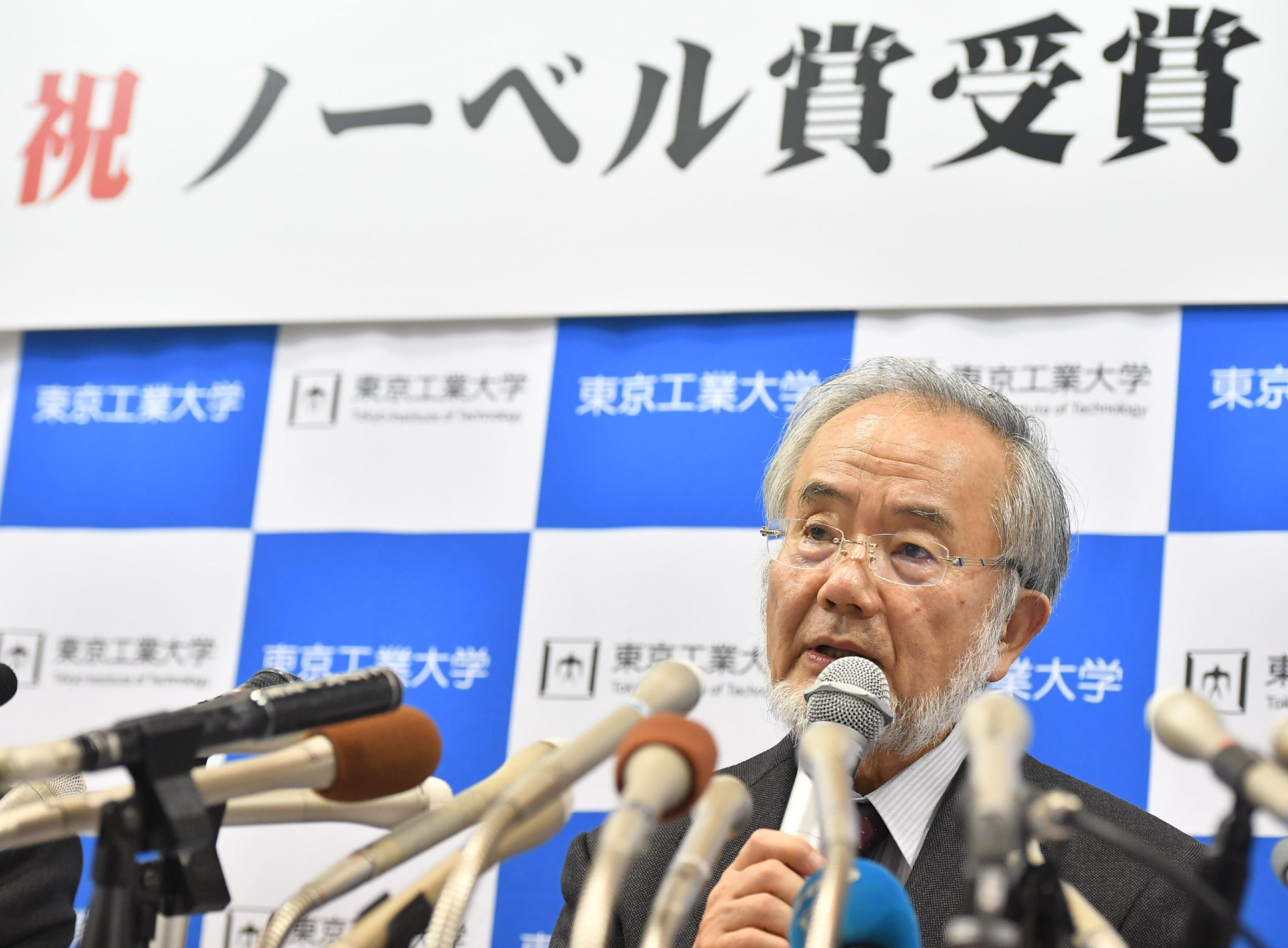
The Japanese cell biologist Yoshinori Ohsumi has been awarded the 2016 Nobel Prize in Physiology or Medicine, for his “discoveries of mechanisms for autophagy”.
Autophagy, meaning ‘self-eating’, is the way cells can remain healthy through an internal recycling program whereby they destroy their own contents in order to make way for new cells, as well as fighting off invading bacteria and viruses.
Ohsumi, 71, will receive 8m Swedish kronor ($937,399) for his achievement at the Nobel awards ceremony Dec. 10 in Stockholm. Here’s what we know about him:
1. He’s the fourth Japanese scientist to have won a Nobel Prize for medicine
Ohsumi is the 25th Japanese person to win a Nobel Prize, and the fourth to win the medicine prize, according to The Japan Times. Born in 1945 in Fukuoka, Japan, he spent three years at Rockefeller University in New York before returning to the University of Tokyo (where he previously received a PhD) to establish his research group.
He is currently a professor at the Tokyo Institute of Technology.
2. He’s the first scientist to define cell recycling
Cells need to recycle in order to survive. “When nutrients are scarce, the cell has a system for breaking down old or unneeded machinery and harvesting the parts to keep itself going,” explains Ivan Semeniuk of The Globe and Mail.
This crucial, ‘self-eating’ system, known as autophagy, was detected by Ohsumi in baker’s yeast cells in 1988. He has since referred to himself as “a basic researcher in yeast” – even though his discovery is widely recognized as fundamental to human cell survival.
3. His focus of research could help explain a number of diseases
As cancer or neurological disorders such as Parkinson’s or Alzheimer’s can form when there are mutations in autopaghy genes, studying this recycling system can help explain – and prevent – the occurrence of many diseases.
Speaking to the Globe and Mail after receiving the 2015 Gairdner International Award, Canada’s top international medical-science prizes, Ohsumi said he believed his discovery’s “relevance to many diseases will be discovered in the near future”.
4. It also explains how we can adapt to starvation
Autophagy is a natural defence our bodies use to survive – and exploring it can help scientists understand how we manage to cope with extreme situations.
“Ohsumi’s discoveries opened the path to understanding the fundamental importance of autophagy in many physiological processes, such as in the adaptation to starvation or response to infection,” said the Nobel Assembly in a press release.
5. He had a message for young scientists
Ohsumi was surprised about winning the prize, but “extremely honored”, the Associated Press reported Monday, following the announcement. “All I can say is, it’s such an honor,” he told reporters at the Tokyo Institute of Technology, according to the Japanese broadcaster NHK and The New York Times. “I’d like to tell young people that not all can be successful in science, but it’s important to rise to the challenge.”
More Must-Reads from TIME
- Donald Trump Is TIME's 2024 Person of the Year
- Why We Chose Trump as Person of the Year
- Is Intermittent Fasting Good or Bad for You?
- The 100 Must-Read Books of 2024
- The 20 Best Christmas TV Episodes
- Column: If Optimism Feels Ridiculous Now, Try Hope
- The Future of Climate Action Is Trade Policy
- Merle Bombardieri Is Helping People Make the Baby Decision
Write to Kate Samuelson at kate.samuelson@time.com